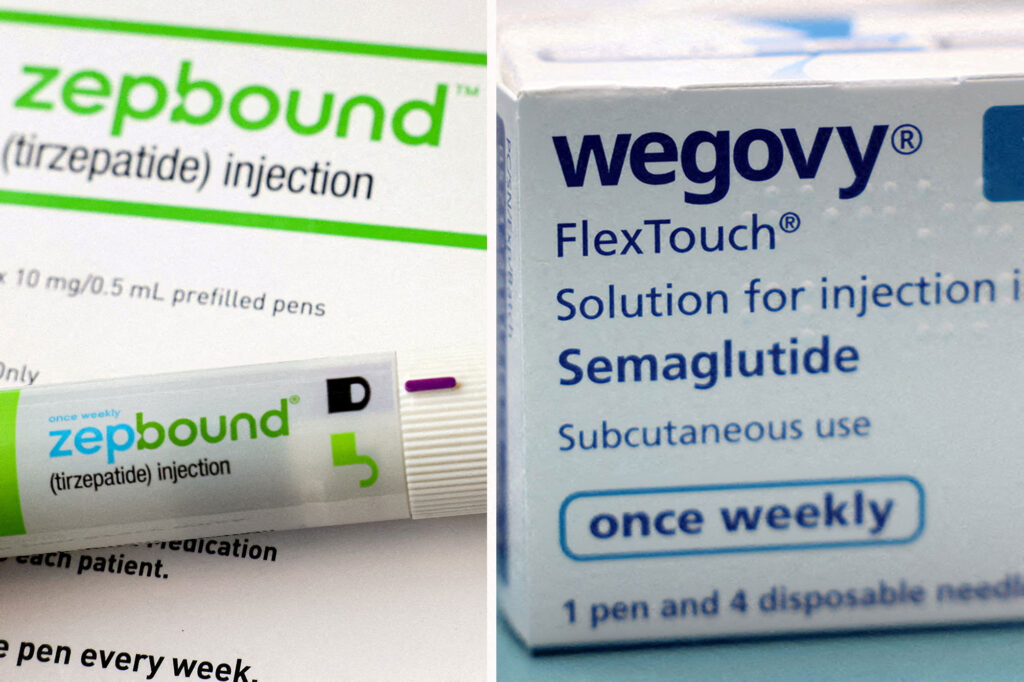- Web
- Feb 15, 2026
Fat, not muscle: the race for next weight-loss breakthrough
-

- Reuters
- Feb 20, 2025

Current weight-loss methods such as lifestyle changes, surgery, and popular therapies like Novo Nordisk’s NOVOb.CO Wegovy and Eli Lilly’s LLY.N Zepbound result in both fat and muscle loss that can increase the risk of falls and decrease overall strength, which could be especially harmful for older patients.
The following companies are developing weight-loss treatments that help preserve or grow muscles while patients shed pounds:
Eli Lilly
The U.S. drugmaker spent nearly $2 billion in 2023 to acquire Versanis Bio’s bimagrumab, which prevents the activity of a protein called myostatin to help preserve muscle.
Lilly is testing bimagrumab alone and in combination with Novo’s Wegovy — a mid-stage trial begun before the acquisition — with a main goal of change in total body weight. It is also partnering with China-based Laekna2105.HK to develop a similar drug.
Regeneron
Regeneron REGN.O is testing its drug, trevogrumab, along with Wegovy and another treatment, garetosmab, in a three-part study with healthy and obese participants. Trevogrumab is an antibody that belongs to the same class of treatments as Lilly’s bimagrumab.
The study, expected to be completed next year, has a main goal of change in body weight, but also will measure change in fat mass, waist circumference, body composition, and thigh muscle volume. It is expected to be completed next year.
Scholar Rock
The drug developer SRRK.O is testing apitegromab, an experimental therapy that targets the myostatin protein, alongside GLP-1 treatments. Its drug helped improve motor function for patients with spinal muscular atrophy in a late-stage study.
The mid-stage study plans to enroll 100 patients and evaluate changes in total lean mass, or fat-free mass. Secondary goals include changes in body weight and various types of fat.
Also read: Benedict Cumberbatch unexpectedly sideswiped by grief in ‘Thing With Feathers’
Roche
Swiss drugmaker Roche ROG.S began a study last year of its experimental drug, RG6237, as a monotherapy in people with high body weight. The drug, known as an anti-latent myostatin, works by eliminating an inactive form of the protein from the blood.
Roche plans to start a mid-stage trial this year combining the drug and its own GLP-1 weight-loss drug candidate CT-388.
Biohaven
Biohaven BHVN.O is evaluating its myostatin targeting drug, taldefgrobep alfa, in an early-stage obesity trial.
The drug recently failed to improve motor function in patients with spinal muscular atrophy, but helped cut total body fat mass and showed numerically larger increases in lean mass and bone density compared to placebo.
It said it plans to rapidly advance a mid-stage study of the drug in patients with obesity.
Keros Pharma
Keros’ KROS.O drug, KER-065, which targets myostatin and activin A proteins, increased lean mass and reduced fat mass in obese mice when given alone and in combination with semaglutide, the active ingredient in Wegovy and Ozempic.
Keros said it will assess the drug’s safety in an early-stage study of male patients with obesity. Data from this study is expected in the first quarter of 2025.
Elevai Biosciences
Elevai Biosciences, a unit of PMGC Holdings ELAB.O, acquired two myostatin targeting drugs – EL-22 and EL-32 – from South Korean firm MOA Life Plus 142760.KQ last year.
The company, previously known as Elevai Labs, plans to seek an FDA green light to begin human studies this year for both experimental drugs in combination with GLP-1 treatments.
Veru
Veru’s VERU.O oral drug, enobosarm, targets the androgen hormones that play a role in body development and reproductive health. In a mid-stage study, patients who received the drug along with Wegovy lost 71% less lean, or muscle, mass on average than those who received Wegovy and a placebo over 16 weeks.
The company will test whether its drug can improve stair climb power in patients aged 60 and older in a larger, late-stage study.
Also read: Lucky dog flies to Japan in Business Class
35 Pharma
Montreal, Canada-based 35Pharma plans to test the safety of its experimental drug, HS235, in an early-stage study. The treatment targets activin and GDF ligands – two proteins that play a key role in regulating skeletal muscle, blood and bone metabolism. Data from this study is expected in the second half of this year.
Arrowhead Pharmaceuticals
Arrowhead Pharmaceuticals ARWR.O has two RNA-based obesity drugs in its pipeline – ARO-INHBE and ARO-ALK7 – that intervene in a pathway that signals the body to store fat. The company plans to evaluate ARO-INHBE in human studies this year, both as a monotherapy and in combination with Lilly’s tirzepatide, the active ingredient in Zepbound and diabetes drug Mounjaro.
Six Peaks/AstraZeneca
AstraZeneca AZN.L in May 2024 agreed to pay up to $80 million to SixPeaks Bio to work with the Swiss biotech start-up on its antibody that targets activin cell receptors to preserve muscle mass in people on weight-loss therapy. Under the deal, Astra also obtained certain exclusive rights to acquire SixPeaks.




